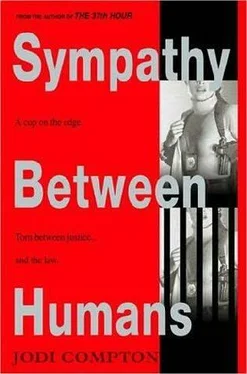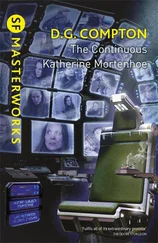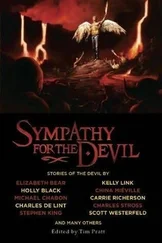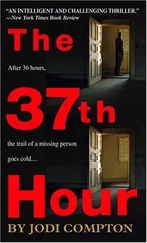Whatever happened, I couldn’t turn him in now. I’d crossed too many lines.
“I feel really bad,”I said.
I was standing on the Hennessys’ doorstep. Marlinchen had answered my knock, tinier than I remembered in faded jeans and what looked like a child’s T-shirt with a pencil-line dark-blue heart at the center. She’d listened with guarded patience as I’d explained about the illness that had made me a little more than twenty-four hours late in keeping our appointment.
Only late yesterday had I remembered it, my promise to drive out and talk with Marlinchen again. What made me feel worse was that when I’d checked the messages on my cell phone, there’d been nothing from her. She’d written me off as an adult who’d dismissed her and her problems as insignificant.
“I thought you’d changed your mind,” Marlinchen told me. “You made a point of saying that Aidan was way out of your jurisdiction.”
“I wouldn’t just stand you up,” I said. “Can I come in now, or is this a bad time?”
“It’s fine,” Marlinchen said, stepping aside to let me into their entryway. “But I thought you worked in the afternoon and evening.”
“I do, but this is my day off,” I said. “And anyway, I’m rotating back onto day shifts soon.”
Marlinchen led me back toward the kitchen and family room where we’d been earlier. Nowhere in the house could I hear activity, but there was a live feel in the air, and I knew the boys were around.
The kitchen, in fact, was occupied, but not by anyone cooking or eating. Instead, Donal sat in a chair that was elevated by an encyclopedia volume under each leg. He had a beach towel wrapped around his chest and shoulders. A pair of shears lay on a nearby counter, and a small corona of light-brown hair lay on the floor around the chair legs.
“Donal, you remember Detective Pribek,” Marlinchen said, picking up the shears.
“Hello,” Donal said.
“Hey,” I said. On second inspection, he looked younger than 11, his face still soft and pale with childhood.
To Marlinchen, I said, “Maybe I should wait until you’re done with Donal’s haircut before we get into… what we talked about the other day.”
But she disagreed. “All my brothers know the situation,” she said. “We can discuss it now.”
“All right,” I said. “Let me start with a broad question: Why wasn’t Aidan living at home?”
Marlinchen finger-combed Donal’s hair until a half inch stuck out at the ends, then cut. “Dad is a widower. He was raising five small children. That was just too many,” she said. “Aidan was the oldest, and the best suited to adapt to life away from home.”
“I thought Aidan was your twin,” I said.
Marlinchen smiled. “I make that mistake a lot, calling Aidan ‘the oldest.’ I don’t know why I do that, he was only born fifty-seven minutes before me.” She smoothed Donal’s hair down over his ear, then took up another thick strand and trimmed the end. “It’s ironic, too, because Aidan was held back to repeat the fourth grade, so after that, a lot of people assumed he was younger than me.”
That didn’t really tell me anything; I tried to get back on track. “That was the only reason Aidan was sent away?” I reiterated. “Your father just had too many kids?”
“Do you have children, Detective Pribek?” Marlinchen asked. Her voice had that faint shimmer of patronization that mothers have when asking single friends this question.
“No,” I admitted.
“Of course, I don’t either,” she said, “but I know it’s very, very difficult raising five kids on your own. Dad tried, but he just had his hands too full, with his teaching and his writing. He also had pretty severe pain sometimes, from a degenerative disk. There were episodes where it was almost disabling.” More hair fell. “Later, he developed an ulcer, I think from the pressure of working and raising a family on his own.”
“Mmm,” I said, noncommittal. “When was the last time you heard from Aidan?”
“We don’t really hear from him,” Marlinchen said. Her eyes were down, on her work. “The last I saw him was when he left for Illinois.” Another tiny sheaf of light-brown hair fluttered to the floor.
“ Illinois?” I said.
“Before he went to Georgia, he lived with our aunt, Brigitte, outside of Rockford, Illinois,” Marlinchen explained. “He would have stayed there, but Aunt Brigitte died five months later, and that was when Pete Benjamin offered to let Aidan live on his farm.”
“How did your aunt die?” I asked.
“A car accident,” Marlinchen said.
“How did your father and Pete Benjamin know each other?” I said.
“They grew up in Atlanta together,” she said. “Pete inherited a lot of land and went to farm it. Dad went to college, and the rest was history.” She paused to concentrate, lining up hair. “I think Dad thought Aidan would learn a lot from living on a farm. Dad left college at 19 and traveled through America, and he worked a lot of manual jobs, like farm labor. He said he learned more about life working on the road than in any classroom.”
Marlinchen tugged at the hair on either side of Donal’s ears. “Does this look even to you, Detective Pribek?”
I studied her handiwork. “Yeah,” I said. “I think it does.”
Marlinchen pulled back the beach towel. “Off you go, sport,” she said.
“Finally,” Donal said. “Can I have a Popsicle?”
“I guess that’d be all right,” Marlinchen said.
As Donal raided the refrigerator and left, I asked, “Do you know anything about Aidan’s friends in Georgia, his interests, where he might have gone?”
Marlinchen shook her head. “I wish I did. Maybe Mr. Benjamin can help you with that.”
“That’s a good point,” I said. “I’ll need his phone number. And I could use a picture of Aidan.”
***
Upstairs, the firstdoorway was Marlinchen’s. Inside, she almost immediately folded her legs underneath her and sank to a cross-legged position beside the bed. Reaching underneath the dust ruffle, she pulled out a wooden box and opened the lid. “This’ll take me just a minute,” she said.
While Marlinchen riffled through her box, I looked around at her bedroom. It was orderly and clean; I wouldn’t have expected otherwise. The twin bed was neatly made, covered in cream-colored eyelet. Her desk faced the window, likewise painted cream, and at its edge a pen with an old-fashioned ostrich-feather plume stood at the ready. It was charming, but the real work undoubtedly was done on the laptop that sat, jarringly modern, at the desk’s center.
“Do you write?” I asked her. “I mean, outside of school?”
Marlinchen shook her head, still looking down into the box. “Liam does,” she said.
Atop the dresser were two photos in frames. One was a snapshot of Marlinchen among classmates on what looked like a class trip to a Twins game, another of Marlinchen and her three younger brothers on the bank of a creek. For the bedroom of a middle-class teenage girl, it was a surprisingly small amount of sentimentalia. In doing missing-persons work, I’d been in a few adolescent girls’ rooms, and I’d seen displays that made me wish I owned stock in Kodak: dates, proms, class trips, sleepovers, all memorialized in pictures.
“Here,” Marlinchen’s voice interrupted me, “while you’re looking at photos, here’s one of Aidan.”
The Polaroid showed a boy of perhaps 11, standing next to a tire swing, which dangled from the willow I’d seen on the far side of the house. The boy in the photo clearly was going to be tall, taller than Hugh Hennessy, I thought. And, though the detail didn’t leap out, when you looked at the hand on the rope, you could see the nub of dark pink flesh where the smallest finger should have been. Otherwise, Aidan Hennessy was pleasant-looking, serious in expression, blond and blue-eyed like his sister.
Читать дальше












